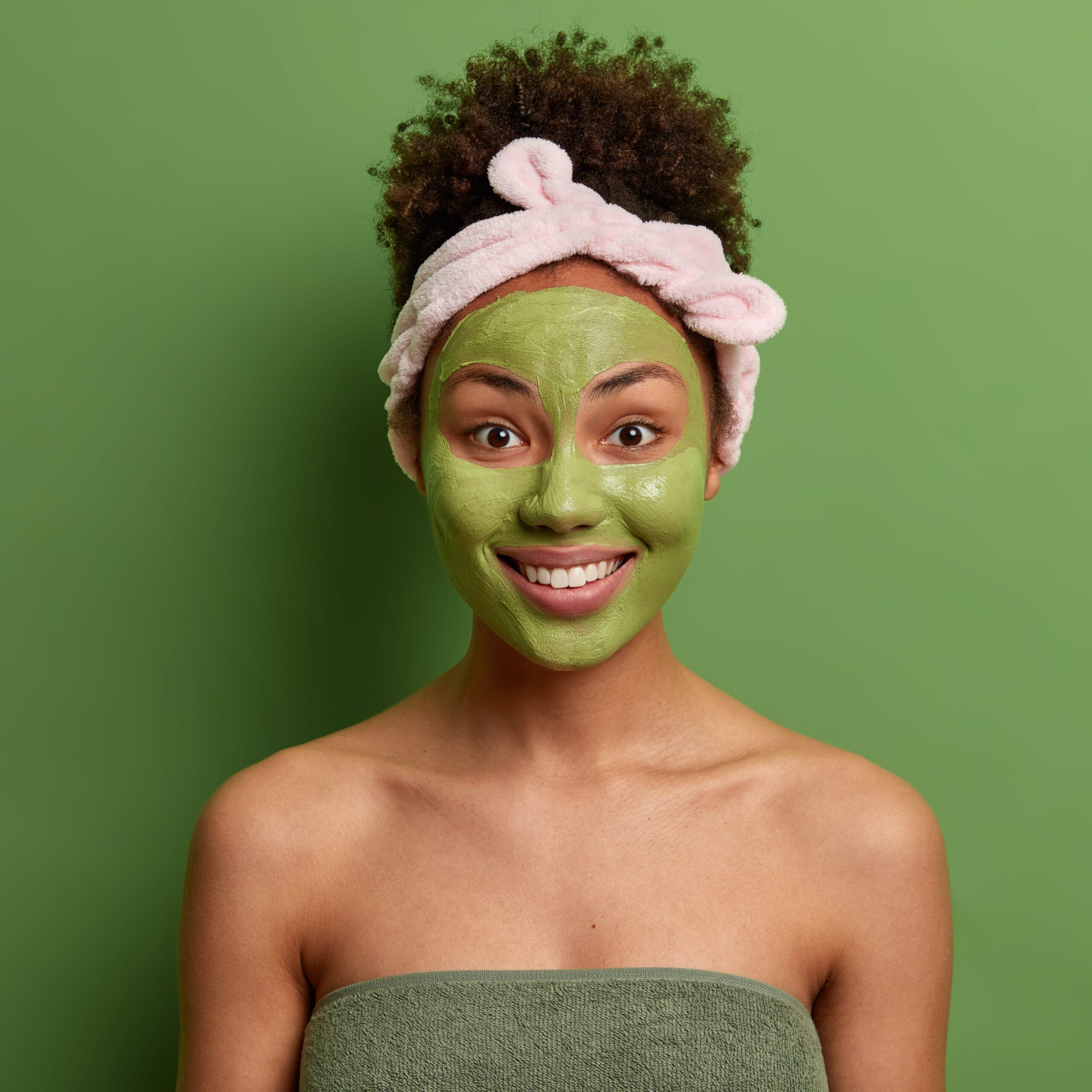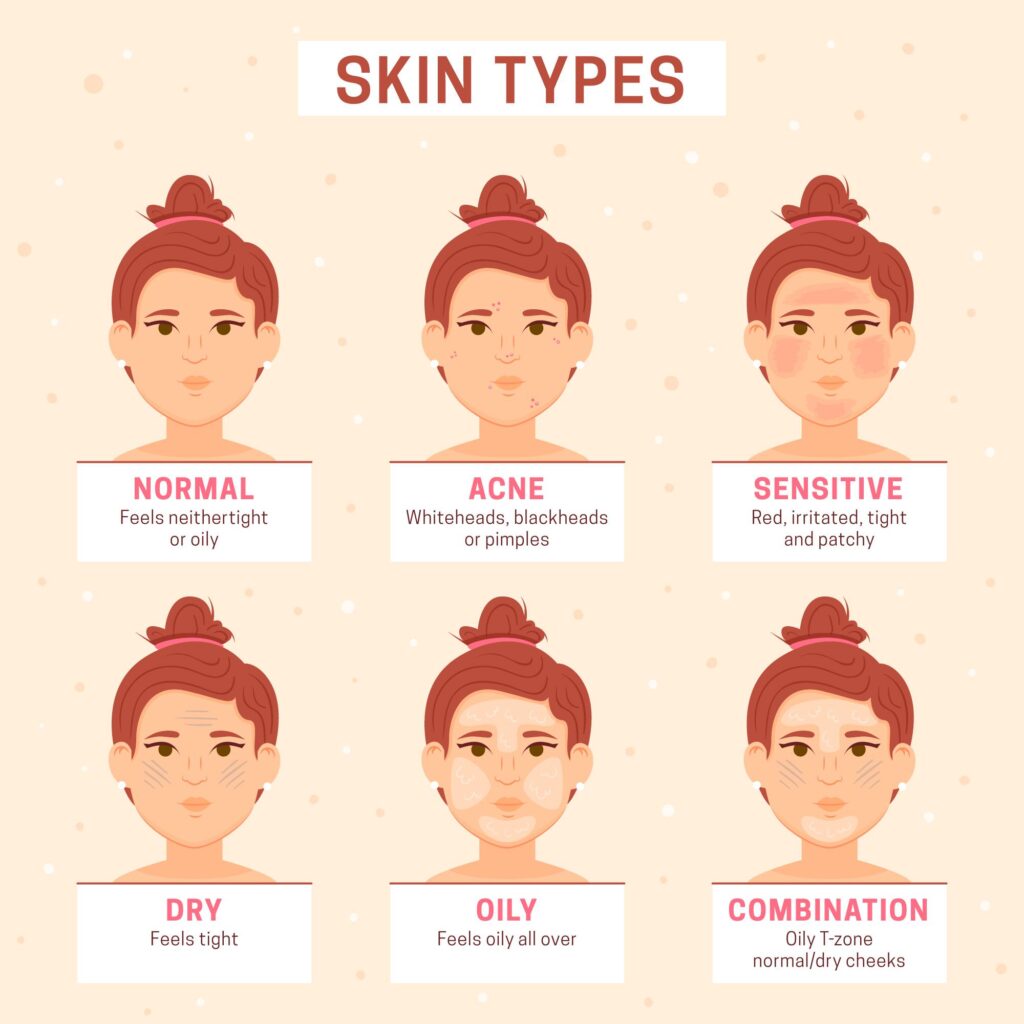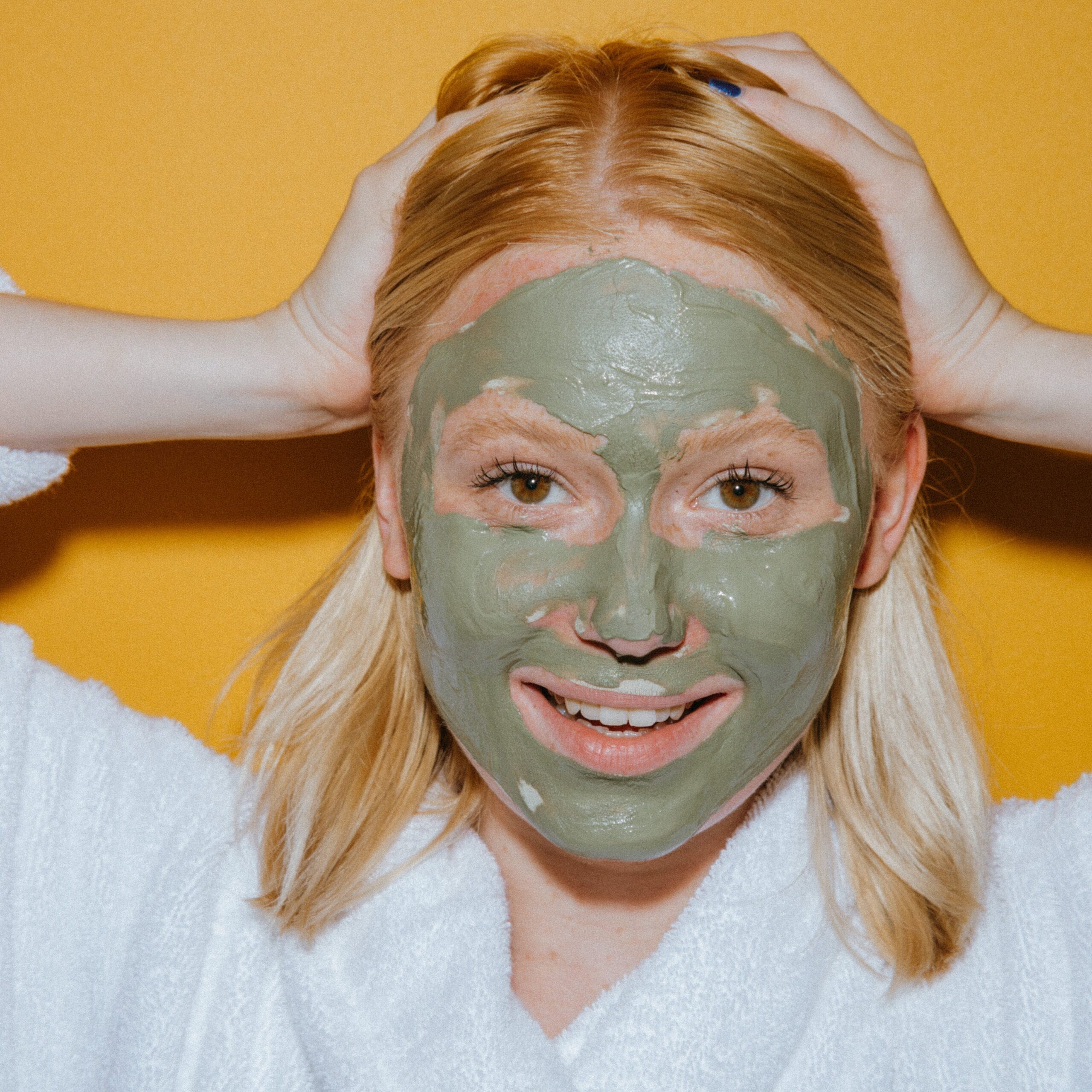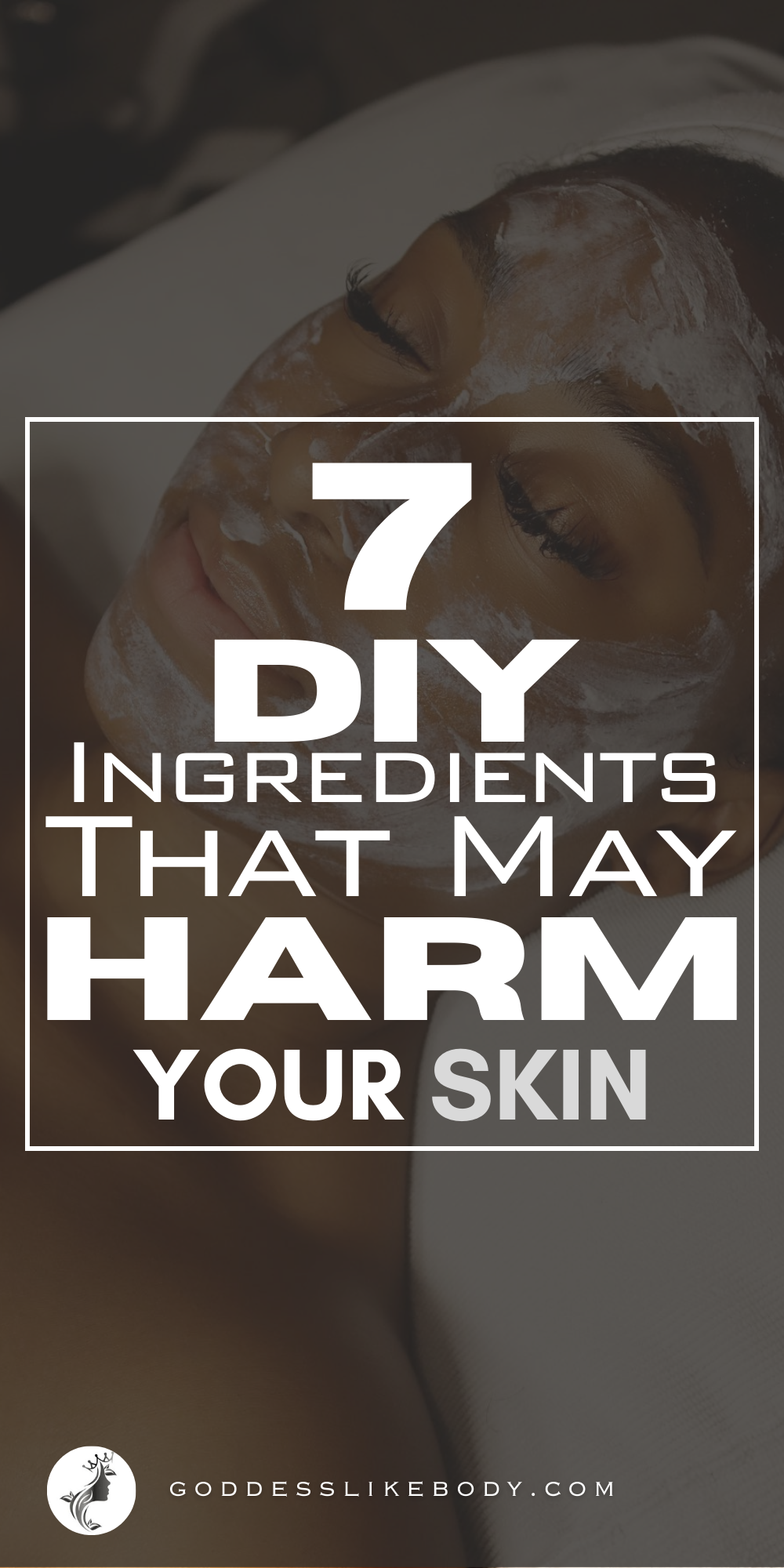How To Make Face Mask At Home Easily
Taking care of your skin is important to maintain its health and youthful appearance. One good and effective way to achieve this is by using face masks.
While there are countless options available in the market, making your own face mask at home can be a cost-effective and fun way to take care of your skin.
In this post, we will guide you through the process of making a face mask easily, using simple ingredients that you can find at home in your kitchen or local a grocery store.
Busy? Save this pin for later.

Benefits of Using a Face Mask
Before we dive deep into the step-by-step guide on how to make a face mask, let’s first briefly discuss the benefits of using a face mask.

Face masks offer a range of advantages, including:
Deep Cleansing: A well-formulated face mask can penetrate deep into your pores, removing dirt, oil, and impurities that regular cleansers may miss to remove.
This deep cleansing action helps to unclog pores and prevent breakouts, leaving your skin looking more fresh and clear.
Exfoliation: Some face masks contain exfoliating ingredients, such as alpha hydroxy acids or enzymes, which help in removing dead skin cells and promoting cell turnover for a brighter skin complexion.
By exfoliating the skin, face masks can also improve the absorption of other skincare products, allowing them to work more effectively.
Hydration and Nourishment: Many face masks are designed to hydrate and nourish the skin, providing it with essential nutrients that can improve its overall health and texture.
Ingredients like avocado, honey, and yogurt in homemade face masks can deeply moisturize the skin, leaving it feeling soft and supple.
Tightening and Firming: Certain masks usually have ingredients like clay or collagen, which can help in tightening and firming the skin, reducing the appearance of fine lines and wrinkles.
These masks work by temporarily plumping the skin and improving its elasticity, giving you a more youthful and lifted appearance.
Relaxation and Self-Care: Applying a face mask can be a soothing and relaxing experience, offering you a moment of self-care in your busy routine.
Taking the time to pamper yourself with a homemade face mask not only benefits your skin but also helps to reduce stress and promote overall well-being.
Now that we’ve seen the benefits of using face masks, let’s take a look at the process of making one at home.
You Might Also Like: 8 Skincare Secrets for Youthful and Ageless Beauty
Ingredients for a Basic Face Mask
To create a basic face mask, you will need the following ingredients:
- 1 ripe avocado: Avocados are rich in healthy fats and antioxidants, which can nourish and hydrate the skin. They also contain vitamins E and C, which have anti-aging properties and can help in reducing inflammation.
- 1 tablespoon of honey: Honey has antibacterial properties and can help in soothing and moisturizing the skin. It is also a natural humectant, which means it helps to retain moisture in the skin.
- 1 tablespoon of plain yogurt: Yogurt contains lactic acid, which acts as a gentle exfoliant, removing dead skin cells and brightening the complexion. It also has probiotics that can help in balancing the skin’s microbiome.
- 1 teaspoon of lemon juice (optional): If you have oily or acne-prone skin, you can add a teaspoon of lemon juice to the mixture. Lemon juice has astringent properties and can help in balancing oil production. However, if you have sensitive skin, it is best to skip this ingredient as it may cause irritation.
Step-by-Step Guide
- Start by mashing the ripe avocado in a bowl until it becomes a smooth paste. Avocados are rich in healthy fats and antioxidants, which can nourish and hydrate the skin. The creamy texture of avocado helps in easy application and ensures that the mask sticks to your skin.
- Add the tablespoon of honey to the avocado paste. Honey has antibacterial properties and can help in soothing and moisturizing the skin. It also adds a natural sweetness to the mask, making it more enjoyable to use.
- Mix in the tablespoon of plain yogurt. Yogurt contains lactic acid, which acts as a gentle exfoliant, removing dead skin cells and brightening the complexion. It also has a cooling effect on the skin, providing relief from any inflammation or irritation.
- If you have oily or acne-prone skin, you can add a teaspoon of lemon juice to the mixture. Lemon juice has astringent properties and can help in balancing oil production. However, it is important to note that lemon juice can make your skin more sensitive to sunlight, so it is recommended to use sunscreen after using this mask.
- Once all the ingredients are well combined, apply the mask to your clean face and neck, avoiding the delicate eye area. Use your fingertips or a clean brush to spread an even layer of the mask on your skin. Make sure to cover all areas, including the T-zone, where oil tends to accumulate.
- Leave the mask on for 15-20 minutes, allowing the ingredients to work their magic on your skin. During this time, you can relax and enjoy the soothing sensation of the mask. You may feel a slight tightening as the mask dries, which is normal.
- Rinse off the mask with lukewarm water and pat your skin dry with a clean towel. Avoid rubbing your skin harshly, as this can cause irritation. Gently pat your skin to remove any residue and let it air dry for a few minutes before proceeding with your skincare routine.
- Finish by applying your favorite moisturizer to lock in the hydration and seal the benefits of the mask. Choose a moisturizer that suits your skin type and provides additional nourishment. Massage the moisturizer into your skin using upward strokes to promote circulation and absorption.
Customizing Your Face Mask
While the basic face mask recipe mentioned above is suitable for most skin types, you can also customize it based on your specific skin concerns.

Here are a few variations you can try:
Dry Skin:
- Add a teaspoon of olive oil or coconut oil to the mixture for extra hydration. These oils are rich in fatty acids and antioxidants, which can help in repairing and moisturizing dry skin.
Oily Skin:
- Replace the yogurt with a tablespoon of bentonite clay, which can help in absorbing excess oil and unclogging pores. Bentonite clay has a mattifying effect on the skin, making it an excellent choice for oily or acne-prone skin.
Dull Skin:
- Include a teaspoon of turmeric powder in the mask for its brightening properties. Turmeric contains curcumin, a compound that helps to even out skin tone and reduce the appearance of dark spots.
Sensitive Skin:
- Skip the lemon juice and use aloe vera gel instead, known for its soothing and calming properties. Aloe vera gel helps to reduce redness and inflammation, making it ideal for sensitive or irritated skin.
Don’t forget to always patch-test any new ingredients or variations on a small area of your skin before applying it to your entire face.
This will help you determine if you have any allergic reactions or sensitivities to the ingredients that you used. Making your own face mask at home is a simple and enjoyable way to take care of your skin.
By using natural and easily accessible ingredients, you can create a personalized mask tailored to your specific skin needs.

Whether you’re looking to cleanse, exfoliate, hydrate, or firm your skin, homemade face masks can provide you with all these benefits and more.
So, why not treat yourself to a DIY spa experience and give your skin the care it deserves?
You Might Also Like: The Ultimate Guide to Skin Cleansing: What You Need to Know
FAQ
1. What are the benefits of using a face mask?
- Face masks offer deep cleansing by removing dirt, oil, and impurities from pores.
- They exfoliate the skin, removing dead cells and promoting cell turnover for a brighter complexion.
- Face masks provide hydration and nourishment to improve the overall health and texture of the skin.
- Certain masks can tighten and firm the skin, reducing the appearance of fine lines and wrinkles.
- Applying a face mask can be a relaxing experience, reducing stress and promoting overall well-being.
2. What ingredients do I need to make a basic face mask at home?
To make a basic face mask, you will need:
- 1 ripe avocado
- 1 tablespoon of honey
- 1 tablespoon of plain yogurt
- 1 teaspoon of lemon juice (optional)
3. How do I make a basic face mask at home?
Follow these steps to make a basic face mask at home:
- Mash the ripe avocado into a smooth paste.
- Add honey, plain yogurt, and optional lemon juice to the avocado paste.
- Mix all the ingredients well.
- Apply the mask to your clean face and neck.
- Leave it on for 15-20 minutes.
- Rinse off with lukewarm water and pat dry.
- Apply moisturizer to seal in hydration.
4. Can I customize the face mask for my specific skin concerns?
Yes, you can customize the face mask based on your skin concerns:
- For dry skin, add olive oil or coconut oil for extra hydration.
- For oily skin, replace yogurt with bentonite clay to absorb excess oil.
- For dull skin, include turmeric powder for brightening properties.
- For sensitive skin, skip lemon juice and use aloe vera gel for soothing properties.
You Might Also Like: 5 Common Skin Issues And How To Treat Them Naturally



